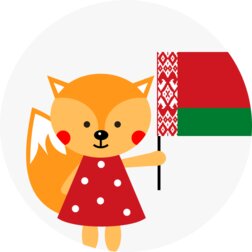Children’s Rights in Belarus
Human rights are the rights that protect the dignity and liberty of every individual, regardless of their nationality, residence, gender, ethnicity, skin color, religion, language or any other feature. These rights guarantee people a fulfilling life in the society and enable them to develop as individuals. The most important document on human rights is the Universal Declaration of Human Rights.

Right after declaring independence, the Republic of Belarus proclaimed its commitment to the international law and the idea that the country’s sovereignty should serve free development and prosperity of every citizen.
The Universal Declaration of Human Rights stresses equality and freedom of all people at birth. However, the rights of small children are naturally restricted as they know little about the world, lack experience, and cannot bear responsibility for their actions. The older children grow, the more personal rights and responsibilities they get.
Until a certain age, children’s interests are protected by their parents or guardians. They are responsible for the child’s life and health.
First of all, the child’s rights include their rights as an individual. A child, like any other person, has the right to respectful treatment, decent living, and personal development.
The child has the right to:
- housing accommodation;
- life and healthy development;
- special care due to mental and physical conditions;
- equal rights regardless of nationality, gender, and religion;
- education;
- family;
- name, citizenship, personal identity;
- use of the native tongue;
- personal opinion and the right to freely express it;
- healthcare and social security;
- wholesome and quality meals;
- recreation and leisure, participation in games, cultural life, artistry;
- protection from economic exploitation;
- protection from cruel treatment;
- protection from all forms of sexual exploitation.
Four Principles of the Convention on the Rights of the Child
Freedom from discrimination
Children of different gender and age have different interests and needs, but all of them have equal rights and should be treated equally regardless of their gender, nationality, ancestry, health status.
Serving the interests of a child
When making decisions and planning their actions, adults must always account for the interests of a child. This is the key principle for families, government bodies, courts, public and private institutions.
Right of a child to life and development
Parents must do their best for the normal development and self-fulfillment of a child. The state provides comprehensive support and assistance to parents. If parents cannot provide necessary conditions for their children despite the support from the state, the state will take care of the children.
Respect for children’s views
In all situations involving the interests of a child it is essential to listen to them, take their opinion into account instead of just making decisions for them even if these decisions are in their interest. This principle must be observed in all aspects of a child’s life.



